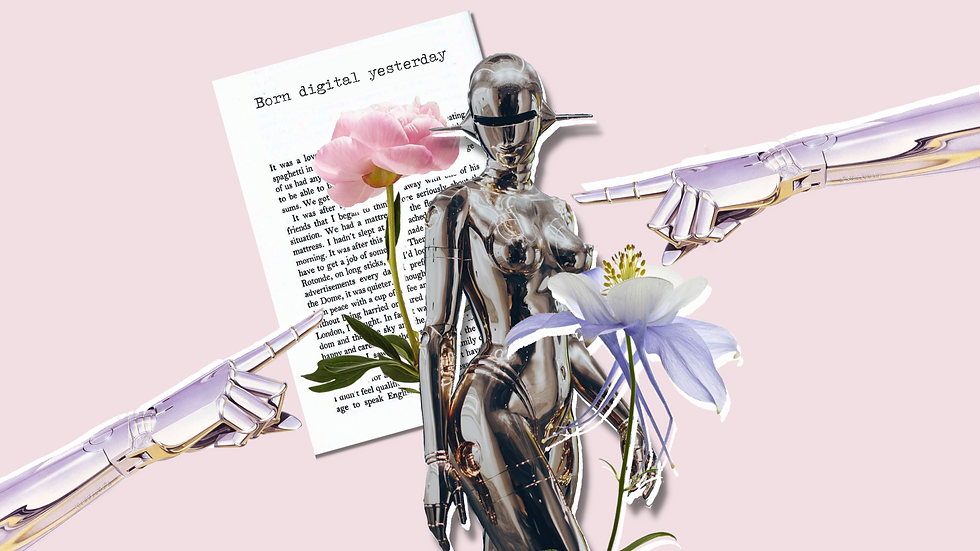Till Tech Do Us Part
- Valentina Danaus
- 27 mar 2023
- 2 Min. de lectura

In my second year of Journalism, I was appointed with the task to write a dystopian short story inspired by a common fear regarding Artificial Intelligence and its moral considerations. The exercise aimed to identify the potential harm of the integration of technology into normal human activities. Its result brought up plenty of misconceptions about AI, but most importantly, it highlighted the inseparable nature of human instincts combined with the fantasy of immeasurable power. The verdict was clear: technology could only hurt us in ways we were already hurting.
However, in this reflection it is not my aim to reiterate the known fact that the limits to the autonomy of AI are miles away from the scenarios detailed in these sci-fi films and click-bait news headlines, where it is understood as a marketing invention and a field for philosophical contemplation. But instead, conceive technology less as a vessel and more as a mirror.
A point of consideration in this discourse is the exercise of simulation, and what new societal patterns rise from the confrontation of the real world with its digital counterpart. In the words of Berry “Today we live within a horizon of interpretability determined in large part by the capture of data by algorithms which overtake our lives and thoughts”. A horizon in which we aim to recreate real-world experiences, rewiring our brains to fit them just as much as we program them to imitate us.
The fear behind the tensions of man vs machine too often is the dangers of AI being incapable of understanding the human experience, lacking the delicacy and reflexivity to make reasonable moral calls. But if we take a closer look at the fatal flaw behind these dystopian scenarios that cast technology as the utmost evil, we find that the truth at the climax of the story is never a result of some independent, non-anticipated whim of evil from the machine, instead they are deliberate programming decisions that are rooted in human corruption or incompetence.
This does not mean that AI does not risks falling into the dichotomy of any other tool-turned-weapon. But this type of technological advance is not just any other tool. It is instead one with very special properties, which demands from its very genesis to lean with uncomfortable proximity to the human mind, coming close enough to alter its relationship with the being and the world.
As argued by the idea of extended cognition in relation to artificial intelligence, the human consciousness is capable of escaping the confinement of the body and is stimulated by external factors, one of which is technology. Therefore to navigate the distance that approaches the machine to the man and the man to the machine, we must calibrate our means of interaction with the systems we are building. It is an exercise in hermeneutics in the way Heidegger conceived it, as a method to assist in the explanation of these humanistic pursuits.
Remembering this we could come closer to assuring that our humanistic perspective is not being clouded by the possibilities promised by the newer technologies, and that we are not losing ourselves In the attempt to merge both worlds, in ways, that are better left separate. “To render unto Caesar that which is Caesar’s and unto God that which is God’s”.






Comentarios